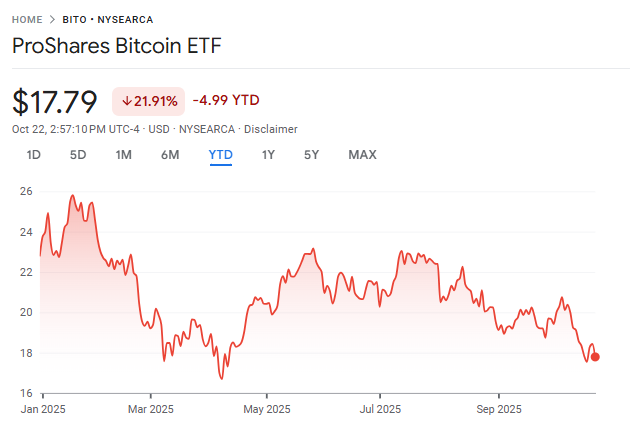This is an adapted excerpt from the Oct. 21 episode of “The Briefing with Jen Psaki.”
In a jaw-dropping report on Tuesday, The New York Times revealed that Donald Trump is demanding that the Justice Department pay him roughly $230 million as a settlement for the federal investigations he faced during the Biden administration.
The Times reports that Trump is “negotiating, in essence, with his subordinates,” and notes that, according to the Justice Department manual, “settlements of claims against the department for more than $4 million ‘must be approved by the deputy attorney general or associate attorney general,’ meaning the person who oversees the agency’s civil division.”
There really isn’t a scenario in which the speaker of the House wouldn’t have been briefed about this story.
The two individuals responsible for approving Trump’s claims would be Todd Blanche, one of the president’s former personal lawyers, and Stanley Woodward, who represented a Trump ally in the classified documents case.
When the Times asked the Justice Department if either Blanche or Woodward would recuse themselves from overseeing this potential settlement because of their connections to Trump, a spokesperson said, “In any circumstance, all officials at the Department of Justice follow the guidance of career ethics officials.” (Notably, the spokesperson did not acknowledge that the top ethics adviser was fired from the Justice Department in July.)
Trump acknowledged The New York Times report on Tuesday, telling reporters the government owes him “a lot of money.”
We have never before as a country seen corruption this brazen at this magnitude. In normal times — and we are definitely not in them now — you would expect Congress to step in and nip this settlement in the bud, or at the very least be very publicly mad about it.
But that is not the case. When House Speaker Mike Johnson was asked about the potential settlement Tuesday, the Louisiana Republican refused to comment. “I’m not gonna comment on something I haven’t read, so I’m not sure what you’re talking about,” Johnson told reporters.
Now, there really isn’t a scenario in which the speaker of the House wouldn’t have been briefed about this story — a major headline in one of the biggest newspapers in the country. But Johnson’s response should not come as a surprise; it has become his go-to approach.
There has been a running joke in Washington, D.C., for years now that when Trump does something inappropriate, Republican senators and representatives can simply say they “haven’t seen the tweet,” that they “didn’t hear his comments” or that they “haven’t seen the article.”
But Johnson has taken that “see no evil” response to a whole new level. Over the past few months, the speaker has claimed ignorance on everything from Trump’s crypto dealings to the president’s reported relationship with Jeffrey Epstein.
Just last Friday, Johnson was asked about a then-day-old report from ProPublica on the 170 U.S. citizens, 20 of whom were children, who had been held by Trump’s federal immigration agents. Some had been kicked, dragged or detained for days. But Johnson claimed he hadn’t seen that report. “I don’t know what you’re talking about with the children,” he told one reporter.
On Tuesday, we got the news that one of the Jan. 6 rioters that Trump pardoned earlier this year was re-arrested last week for allegedly threatening to kill Democratic House Minority Leader Hakeem Jeffries.
When asked about the threat against his Democratic counterpart, Johnson did broadly condemn political violence before, of course, falsely claiming that political violence is primarily a left-wing issue. But when asked about the issue of whether Trump should have pardoned the rioters, when asked whether that was a mistake, Johnson told reporters that he didn’t “know any of the details of this at all,” and that he didn’t “know who has been alleged to have been involved.”
It’s pretty incredible. He hasn’t seen the article. He hasn’t heard the comments. He doesn’t know the details. It is quite a convenient excuse. It means that he, as the speaker of the House of Representatives, one of the most powerful people in the country, doesn’t actually have to answer for his actions and inaction.
Johnson is just burying his head in the sand. This approach to power isn’t just weakening our nation’s system of checks and balances — it is directly hurting our country’s system of representative democracy.

Just consider Republican Rep. Cory Mills of Florida. You might remember that earlier this year, Mills was investigated by the D.C. police over a report of alleged assault, which the congressman vehemently denies.
Or you might remember the allegations that Mills misrepresented his military service, which he also denies. Or how Mills is being investigated by the House Ethics Committee for allegedly getting government contracts while a member of Congress (again, allegations Mills denies). Or how he was accused of failing to pay $85,000 in rent for his D.C. apartment, which Mills also denies.
Last week, Mills got hit with a restraining order from an ex-girlfriend who claims the Florida Republican threatened to blackmail her and physically harm anyone she dated — again, allegations Mills denies.
So how did Johnson respond when asked about that long list of allegations against a member of his caucus? You guessed it: He doesn’t know the details. The speaker described Mills as “a faithful colleague” and told reporters, “I don’t know all the details of all the individual allegations and what he is doing in his outside life. You’ll have to ask him about that. Let’s talk about things that are really serious.”
By calling Mills a “faithful colleague,” Johnson said the quiet part loud. The speaker knows he’s a reliable Republican vote in Congress, so not only is Johnson not considering expelling him, but he’s also turning a blind eye to the allegations against him.
Last week, Trump had a similar “quiet part loud” moment when he commuted the sentence of serial liar former Rep. George Santos. Just last year, the New York Republican pleaded guilty to charges of wire fraud and aggravated identity theft, conning people out of hundreds of thousands of dollars.
But Trump commuted his sentence, writing on Truth Social that “at least Santos had the Courage, Conviction, and Intelligence to ALWAYS VOTE REPUBLICAN!”
This approach to power isn’t just weakening our nation’s system of checks and balances — it is directly hurting our country’s system of representative democracy.
When Johnson was asked if he would welcome Santos back to Congress, should the disgraced Republican run again, Johnson told Fox News, “Well, of course. I mean, that’s our system. If the people duly elect a representative, then we will welcome them into the body.”
It’s worth noting that for nearly a full month now, Johnson has refused to seat Democratic Rep.-elect Adelita Grijalva after she won a special election for Arizona’s 7th District. It seems that because she is a Democrat, Johnson feels very differently about “the system” when it comes to swearing her in.
That is the calculation that is happening here: Fraud is fine and allegations of assault and stolen valor and threatening ex-girlfriends with blackmail aren’t “serious” enough to learn the details about, as long as the member of Congress votes along the Republican party line.
Johnson is not just burying his head in the sand — he is burying our representative democracy along with it. He has made one set of rules for Republicans and another for Democrats. In doing so, he is actively robbing Americans of their political representation and denying them their voice in Congress.








